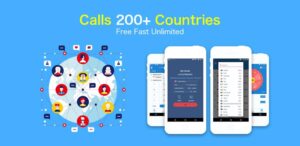[yesno_chart sid=”6″]
As of my knowledge cutoff in July 2023, there isn’t a widely known or established product called “WinGo Hacking AI Bot.” This makes it challenging to provide a direct review of the specific tool you’re referring to. However, I can provide some general guidelines and insights into AI hacking bots, ethical considerations, and what to look for in a review if such a product exists or if it’s similar to known AI-based tools in cybersecurity.
Overview of AI Hacking Tools
AI hacking tools are designed to automate and enhance the process of identifying vulnerabilities in software, networks, and systems. These tools leverage machine learning and AI techniques to detect anomalies, predict potential security threats, and even simulate attacks to test the robustness of security measures.
Features to Look For
- Vulnerability Scanning: The bot should be capable of scanning for a wide range of vulnerabilities, from SQL injection and cross-site scripting to more sophisticated zero-day vulnerabilities.
- Automated Penetration Testing: Advanced AI bots can perform automated penetration testing, mimicking the actions of a human hacker to uncover security weaknesses.
- Threat Detection and Prediction: Using machine learning, the bot should identify not only existing threats but also predict potential future threats based on patterns and historical data.
- Ease of Use: A good AI hacking bot should have an intuitive interface, making it accessible even to those who may not have extensive technical knowledge.
- Integration: The tool should integrate well with existing security infrastructure and tools, such as firewalls, intrusion detection systems, and SIEM (Security Information and Event Management) systems.
- Reporting and Alerts: Comprehensive reporting and real-time alerts are crucial. The tool should provide detailed reports on vulnerabilities, suggested remediation steps, and alert security teams to critical issues immediately.
Ethical Considerations
- Legality: Ensure that the use of any hacking tool complies with local and international laws. Unauthorized use of hacking tools can result in severe legal consequences.
- Ethical Hacking: AI hacking tools should be used for ethical hacking purposes only, such as penetration testing with the permission of the system owner to improve security.
- Data Privacy: The tool should respect data privacy regulations and ensure that any data it processes is handled securely.
Potential Risks
- False Positives/Negatives: AI systems are not infallible and may produce false positives (flagging safe systems as vulnerable) or false negatives (failing to detect actual vulnerabilities).
- Over-reliance on Automation: While AI can significantly enhance security efforts, over-reliance on automated systems without human oversight can be risky. Human expertise is essential to interpret results and make informed decisions.
Example Review Criteria for WinGo Hacking AI Bot
- Effectiveness: How well does the bot identify and respond to vulnerabilities? Are the detection rates high?
- Usability: Is the interface user-friendly? How easy is it to configure and use the bot?
- Performance: How does the bot perform in real-time environments? Does it operate efficiently without significant lag?
- Support and Documentation: Is there adequate support and documentation available to assist users?
- Cost: Is the bot cost-effective for the features and capabilities it offers?
Conclusion
Without specific details on WinGo Hacking AI Bot, it’s challenging to provide a definitive review. However, if you’re considering such a tool, ensure it meets the criteria mentioned above, and always use it within the bounds of the law and ethical guidelines. If you have more detailed information about the product or specific features you’d like to know more about, feel free to provide those details for a more tailored review.








